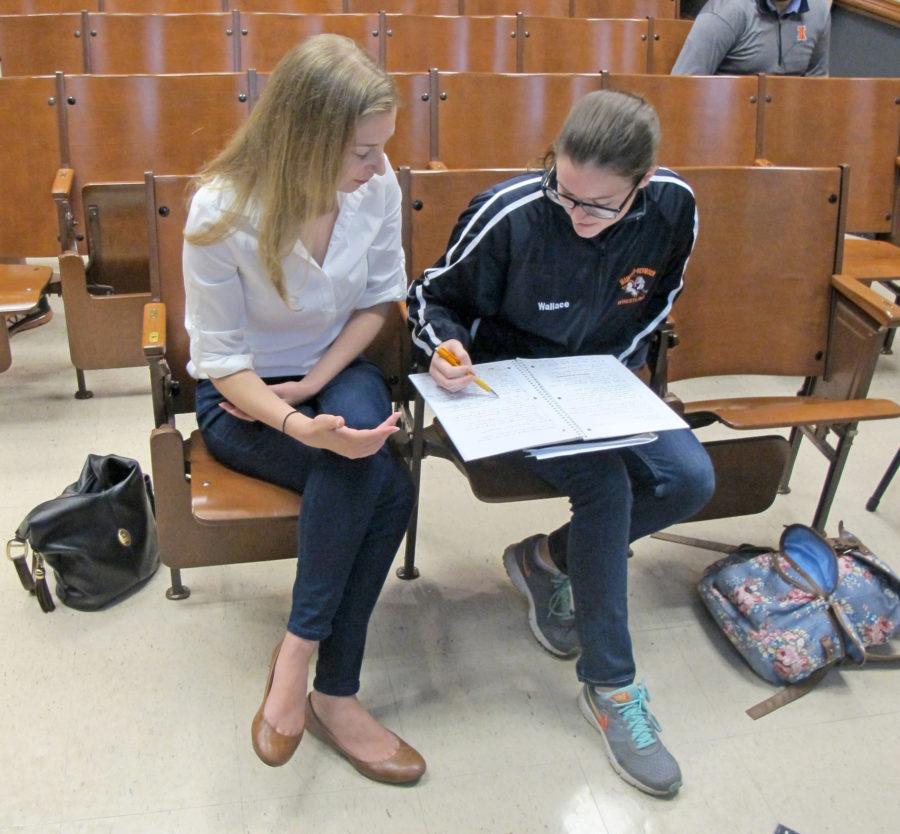Editorial: Increasing extracurricular demands should mean a reduction in homework
A T.A. helps a student prepare for her History of Photography midterm exam.
Sep 14, 2016
With midterms right around the corner, stressed students know just how easy it is to fall into an emotional plea for less homework, only to have teachers or parents construe their complaints as evidence of laziness.
But for hardworking students, too much homework has real post-graduation consequences, especially if it makes it nearly impossible to partake in part-time work, internships, research or other extracurriculars.
“But school is your JOB,” protest people from older generations. We agree. It’s a job that most students take seriously. But having this academic “job” doesn’t mean that college students don’t have other responsibilities that will determine their success in the workforce after graduation.
Often, students must take on extra jobs and excel in multiple internships to be competitive candidates in their desired fields.
From a financial perspective, students often need to work one or more part-time jobs. About 30 percent of students at the University work one or more of these jobs because of the high price of college.
Get The Daily Illini in your inbox!
With the hefty costs of tuition in mind, students need to maximize their time at the University so that their jobs after graduation can pay enough to help repay their debts.
Compounding this issue, the swelling number of prospective employees with degrees causes what some have called “degree inflation.” In many cases, a bachelor’s degree has become a minimum requirement — not a distinguishing feature — on a resume. Employers increasingly seek to fill entry-level positions with graduates who have had relevant internships or research experience.
In a 2014 Gallup-Purdue University poll, 71 percent of students who held relevant internships and jobs during college had full-time jobs a few months after graduating, as opposed to the 56 percent full-time employment rate of those who did not.
The soft skills, such as communication, organization and cooperation that students develop while working with people in different workplace settings are valuable for their future careers.
In order to complete the experiential learning necessary to work in their desired field, students need to have time outside of class. Excessive homework eats into this time, and this is particularly damaging when that homework is from general education requirements that have little relevance to one’s career.
In terms of day-to-day concerns, too much homework often does more harm than good for students who are busy with extracurriculars. When students try to balance too much, they slip into the habit of finishing homework hastily, with a focus on completion rather than quality.
Excessive homework can paradoxically undermine the process of learning and thinking it intends to promote.
We aren’t asking for the elimination of all homework, or for an anti-intellectual environment at the University.
We’re simply asking for a greater opportunity to continue our practical educations and develop skills that cannot be learned while sitting at the library for hours on end.






